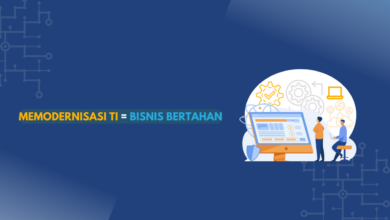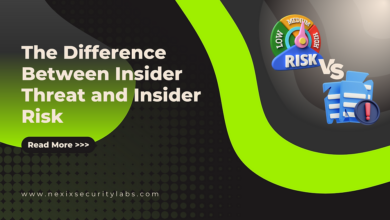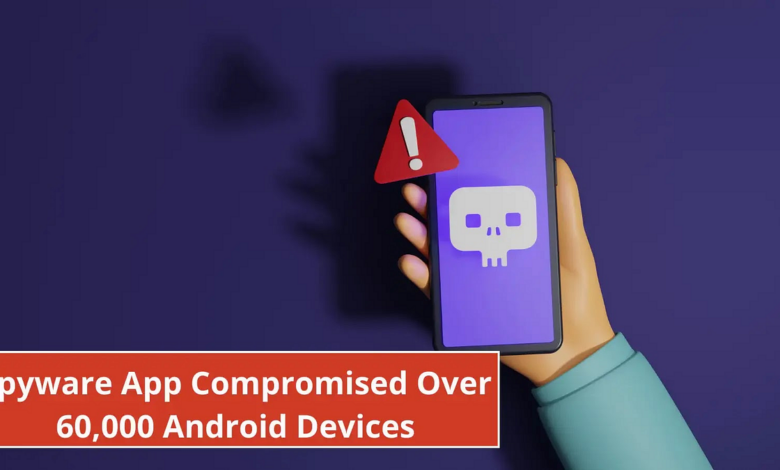
App Stores Become Home to Government Spyware
App stores become home to government spyware: It’s a chilling thought, isn’t it? We download apps to make our lives easier, to connect with friends, to play games – but what if those apps are secretly collecting our data for government surveillance? This isn’t some far-fetched conspiracy theory; increasingly, government-developed surveillance apps are appearing on app stores, raising serious concerns about privacy, security, and freedom.
The technological capabilities of these apps are often astounding, ranging from location tracking and microphone monitoring to the collection of personal data from our phones. The legal frameworks surrounding their development and deployment are often unclear, leaving many users vulnerable and unaware. This raises crucial questions about the balance between national security and individual liberties. Are we willingly handing over our privacy in exchange for convenience, or are we unknowingly becoming subjects of mass surveillance?
The Rise of Government Surveillance Apps
The increasing availability of government-developed surveillance applications on mainstream app stores represents a significant shift in the landscape of digital privacy. These apps, often marketed under innocuous names or disguised within seemingly benign functionalities, are capable of collecting vast amounts of personal data, raising serious concerns about the balance between national security and individual liberties. Their proliferation highlights a growing trend towards the normalization of pervasive digital surveillance.The technological capabilities of these government surveillance apps are constantly evolving, mirroring advancements in mobile technology.
Many employ sophisticated data collection methods, including location tracking via GPS, microphone and camera access for audio and video recording, keylogging to capture typed information, and the ability to access contacts, call logs, and browsing history. Some even possess the capacity to remotely activate a device’s microphone or camera without the user’s knowledge or consent. This level of access allows governments to build comprehensive profiles of individuals, monitoring their movements, communications, and online activities.
Legal Frameworks Governing Surveillance Apps
The legal frameworks surrounding the development and deployment of government surveillance apps vary considerably across jurisdictions. In some countries, robust legal protections exist to safeguard individual privacy and limit government surveillance powers. These often include strict warrants and oversight mechanisms to ensure that surveillance is conducted lawfully and proportionately. However, in other nations, the legal frameworks are significantly weaker or even non-existent, leaving citizens vulnerable to unchecked surveillance.
This lack of consistent global regulation creates a significant challenge in protecting individual privacy in the digital age. The absence of clear, internationally recognized standards allows for a ‘race to the bottom’, where countries with the weakest regulations attract developers and governments seeking to avoid accountability. This can lead to the widespread deployment of intrusive surveillance technologies without adequate oversight or judicial review.
For example, some countries may permit the use of such apps without explicit user consent, relying on broad national security exceptions to data protection laws. Conversely, others may require explicit consent but lack effective mechanisms for enforcing those requirements. This disparity underscores the urgent need for international cooperation to establish consistent and robust legal frameworks governing the use of government surveillance apps.
User Privacy Concerns and Data Security Risks: App Stores Become Home To Government Spyware
The proliferation of government surveillance apps raises serious concerns about user privacy and data security. These apps, often designed to monitor citizen activity, collect vast amounts of personal information, creating a potential for widespread abuse and misuse. The lack of transparency and robust oversight mechanisms further exacerbates these risks, leaving individuals vulnerable to various forms of privacy violations and data breaches.The potential for privacy violations is immense.
These apps can track location data, access communication records (including phone calls, text messages, and emails), monitor internet browsing history, and even record audio and video without the user’s knowledge or consent. This level of intrusion into personal lives poses a significant threat to individual autonomy and freedom of expression. The data collected could be used for purposes beyond the stated aims of the app, such as profiling individuals based on their political beliefs, religious affiliations, or social interactions.
Such profiling could lead to discrimination, harassment, or even persecution.
Data Security Vulnerabilities
The security of data collected by government surveillance apps is often questionable. These apps are susceptible to various vulnerabilities, including hacking, data breaches, and insider threats. Poorly designed security protocols, inadequate encryption, and lack of regular security audits can leave sensitive user data exposed to unauthorized access and misuse. A breach could expose private information to malicious actors, leading to identity theft, financial loss, and reputational damage.
Consider the hypothetical scenario of a data breach affecting a national surveillance app: millions of citizens’ private data, including location histories, communication records, and potentially even biometric information, could be compromised. This would represent a catastrophic failure of data security with far-reaching consequences.
Ethical Implications of Unconsented Surveillance
Deploying government surveillance apps without explicit and informed consent is a serious ethical violation. The fundamental right to privacy is a cornerstone of many democratic societies. Surveillance without consent undermines this right, creating an environment of distrust and fear. The lack of transparency about data collection practices and the potential use of the collected data further erodes public trust.
Furthermore, such surveillance can have a chilling effect on freedom of expression and association, as individuals may self-censor their behavior to avoid attracting unwanted attention. For example, an individual might refrain from participating in peaceful protests or expressing dissenting opinions online for fear of being targeted by the surveillance app. This is a clear violation of fundamental human rights and undermines the principles of a free and open society.
It’s unsettling to think that app stores, our gateways to digital convenience, are increasingly becoming breeding grounds for government spyware. This makes the development of secure, reliable apps even more critical. That’s why I’ve been researching platforms like Domino, learning more about domino app dev the low code and pro code future and its potential to build robust, secure applications.
Ultimately, the fight against government overreach in the app ecosystem demands a focus on secure development practices from the ground up.
App Store Policies and Responsibilities
The rise of government surveillance apps raises critical questions about the role and responsibility of app stores in protecting user privacy and data security. These digital marketplaces, while offering convenience and access to a vast array of applications, also serve as gatekeepers, wielding significant influence over what software reaches billions of users worldwide. Their policies, or lack thereof, directly impact the potential for widespread surveillance and the erosion of individual freedoms.
A thorough examination of their current approaches and a proposal for improved guidelines are crucial steps towards mitigating these risks.App stores currently adopt varying approaches to managing government surveillance applications. Some have more stringent review processes than others, while some lack clear, publicly available policies specifically addressing this sensitive area. This inconsistency creates a fragmented landscape, leaving users vulnerable to different levels of risk depending on the app store they utilize.
Understanding these differences is paramount to advocating for stronger protections.
Current App Store Policies Regarding Surveillance Apps
The following table compares the publicly available policies of three major app stores – Apple’s App Store, Google Play Store, and Amazon Appstore – regarding government surveillance applications. It’s important to note that these policies are subject to change and interpretation, and the enforcement of these policies can vary. Further research into each app store’s specific guidelines and case studies is recommended for a comprehensive understanding.
| App Store | Specific Policy on Surveillance Apps | Data Security Requirements | Transparency Requirements |
|---|---|---|---|
| Apple App Store | Apple’s App Store Review Guidelines generally prohibit apps that engage in mass surveillance or violate user privacy. However, there is no explicit mention of government-developed surveillance apps, and enforcement appears to be case-by-case. | Requires apps to handle user data securely and comply with relevant privacy laws. | Requires developers to disclose data collection practices in their privacy policies. |
| Google Play Store | Google’s Play Store policies prohibit apps that violate user privacy or engage in malicious activities, including unauthorized surveillance. Similar to Apple, specific guidelines regarding government-developed surveillance apps are lacking. | Emphasizes data security and compliance with relevant privacy regulations. | Requires developers to provide a privacy policy outlining data collection and usage practices. |
| Amazon Appstore | Amazon’s Appstore policies generally align with those of Apple and Google, prohibiting malicious apps and those violating user privacy. However, specific details regarding government surveillance apps are not explicitly detailed. | Requires developers to adhere to Amazon’s security standards and relevant privacy laws. | Requires developers to disclose data collection practices within their privacy policy. |
Proposed Improved Guidelines for App Stores
To address the ethical and security concerns surrounding government surveillance apps, app stores should adopt a more proactive and transparent approach. These improved guidelines would establish clearer standards for reviewing and approving such applications, enhancing user protection and promoting accountability.The proposed guidelines would include:
Explicit Prohibition of Mass Surveillance
A clear and unambiguous prohibition against apps designed for mass surveillance without targeted warrants or judicial oversight.
Enhanced Transparency Requirements
Mandating detailed disclosure of data collection practices, including the purpose, type of data collected, storage location, and data retention policies. This would necessitate clear, accessible language understandable to average users.
Independent Audits
Requiring independent security audits for all government surveillance apps before approval and periodic audits thereafter to ensure ongoing compliance.
User Consent Mechanisms
Implementing robust mechanisms to ensure users provide informed consent for data collection and processing, including the ability to easily revoke this consent.
Clear Reporting Mechanisms
Establishing clear and accessible channels for users to report potential abuses or violations of privacy by government surveillance apps.
Enforcement and Accountability
Developing a robust enforcement mechanism to ensure compliance with these guidelines, including penalties for violations.
The Impact on Freedom of Speech and Assembly
The rise of government surveillance apps, integrated directly into our smartphones through app stores, presents a significant threat to fundamental freedoms, particularly freedom of speech and assembly. The potential for unchecked monitoring creates a chilling effect, discouraging individuals from expressing dissenting opinions or participating in political activities. This erosion of civil liberties is a serious concern demanding immediate attention and proactive mitigation strategies.The insidious nature of these apps lies in their capacity for pervasive monitoring.
They can track location data, record conversations, and analyze communication patterns, providing governments with an unprecedented level of insight into citizens’ lives. This level of surveillance can easily be used to identify and target individuals involved in protests, political organizing, or the expression of unpopular views. The very knowledge that such monitoring is occurring can be enough to stifle dissent before it even begins.
Government Surveillance and the Suppression of Dissent, App stores become home to government spyware
The potential for misuse is immense. Imagine a scenario where an app, ostensibly designed for public safety, secretly flags individuals attending a demonstration against government policies. Their location data, combined with their online activity and communication records, could be used to identify them, potentially leading to intimidation, harassment, or even arrest. Similarly, the app could track the communications of activists, allowing authorities to preemptively disrupt planned protests or identify key organizers.
Such actions would directly undermine the right to peaceful assembly and the freedom to express political views without fear of reprisal. Historical examples abound, from the Stasi in East Germany to more contemporary instances of government overreach, illustrating the chilling effect of pervasive surveillance on political participation. The ability to monitor and analyze communications can also be used to identify individuals who are critical of the government or its policies, even if they are not directly involved in any organized opposition.
This creates a climate of fear and self-censorship, stifling open dialogue and the free exchange of ideas.
Mitigating the Negative Impacts on Civil Liberties
Addressing this threat requires a multi-pronged approach. Firstly, strong and transparent data privacy regulations are crucial. These regulations must clearly define what data can be collected, how it can be used, and who has access to it. Independent oversight bodies should be established to monitor compliance and investigate allegations of abuse. Secondly, technological solutions, such as encryption and anonymization techniques, can help to protect individuals’ privacy from government surveillance.
The development and widespread adoption of privacy-enhancing technologies are essential in safeguarding freedom of speech and assembly in the digital age. Finally, public awareness and education are vital. Citizens need to be informed about the risks of government surveillance and empowered to protect their own privacy. This includes understanding how these apps function, what data they collect, and what steps they can take to mitigate the risks.
Furthermore, promoting digital literacy and critical thinking skills is crucial in navigating the complexities of the digital landscape and fostering informed engagement in the democratic process. Without these safeguards, the pervasive use of government surveillance apps poses a significant threat to the very foundations of a free and open society.
International Comparisons and Best Practices
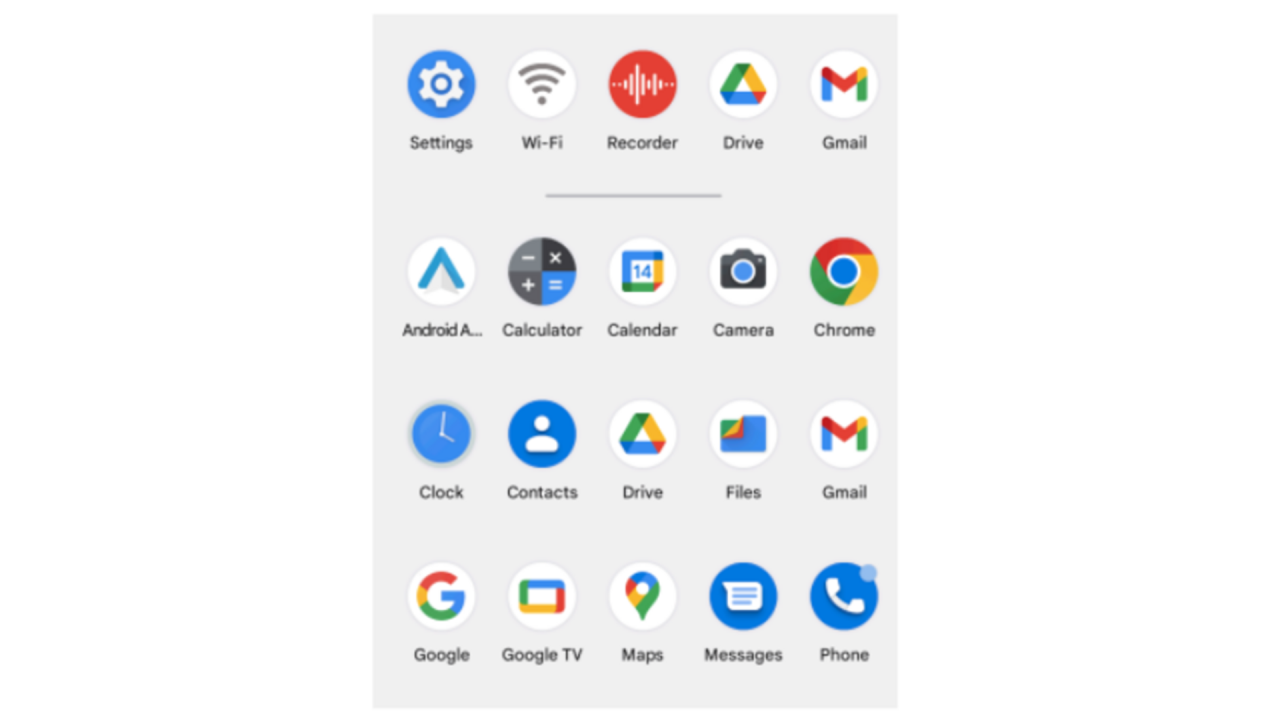
The global landscape of government surveillance app regulation is remarkably diverse, reflecting varying priorities regarding national security, public safety, and individual liberties. A comparative analysis reveals significant discrepancies in the level of oversight, transparency, and accountability applied to these technologies, highlighting the need for international cooperation and the adoption of best practices to mitigate the risks to user privacy and freedom.
Understanding these differences is crucial for developing effective strategies to protect citizens from potential abuses.The regulatory frameworks governing government surveillance apps vary significantly across countries. Some nations, such as those in the European Union, have robust data protection laws (like the GDPR) that impose stringent requirements on data collection, processing, and storage. These regulations often necessitate explicit consent from individuals, limit the purposes for which data can be used, and grant individuals rights to access, correct, or delete their personal information.
In contrast, other countries may have less comprehensive data protection laws, leaving individuals with fewer legal protections against government surveillance. The existence and enforcement of these laws significantly impact the development and deployment of surveillance apps. For instance, the EU’s strict regulations may deter the development of invasive apps compared to regions with less stringent rules.
Data Protection Laws and Oversight Mechanisms
Countries with strong data protection laws often establish independent regulatory bodies to oversee the implementation and enforcement of these laws. These bodies may have the power to investigate complaints, impose sanctions for non-compliance, and issue guidelines on data protection best practices. For example, the UK’s Information Commissioner’s Office (ICO) plays a vital role in monitoring data protection compliance, while the French Commission Nationale de l’Informatique et des Libertés (CNIL) similarly enforces data protection regulations in France.
In contrast, countries with weaker data protection laws may lack such independent oversight mechanisms, leading to less effective regulation and increased risk of government overreach. The presence of an independent and empowered oversight body is a key element of effective regulation.
Comparative Analysis of International Approaches
- Data Minimization and Purpose Limitation: The EU’s GDPR emphasizes the principles of data minimization and purpose limitation, requiring that data collected be limited to what is necessary for specified, explicit, and legitimate purposes. Many other countries lack similarly stringent requirements.
- Transparency and Accountability: Some countries require government agencies to publicly disclose information about their surveillance app programs, including the purpose, scope, and legal basis for data collection. Others maintain secrecy, limiting public oversight and accountability.
- Judicial Oversight: The level of judicial oversight varies significantly. Some countries require judicial warrants or approvals for certain types of surveillance, while others allow for broader government discretion.
- Individual Rights and Redress: Countries differ in the extent to which they guarantee individuals’ rights to access, correct, or delete their personal data, as well as their ability to seek redress for violations of their data protection rights. The EU’s GDPR grants extensive rights in this area, whereas other regions may offer less robust protections.
- Independent Audits and Assessments: The frequency and scope of independent audits and assessments of government surveillance app programs vary considerably. Some countries mandate regular audits to ensure compliance with data protection laws and other relevant regulations, while others lack such mechanisms.
Technological Countermeasures and User Protection
The rise of government surveillance apps necessitates proactive measures to protect individual privacy. While complete immunity is unlikely, employing a multi-layered approach combining technological tools and mindful app usage can significantly reduce the risk of unwarranted surveillance. This section explores practical strategies and tools to safeguard your digital life.
Protecting yourself from government surveillance apps requires a combination of technical expertise and careful consideration of your digital footprint. No single solution offers complete protection, but a layered approach, combining several methods, can significantly reduce your vulnerability.
VPN Usage and Encryption
Using a Virtual Private Network (VPN) encrypts your internet traffic, masking your IP address and making it harder for surveillance apps to track your online activities. A strong VPN with a no-logs policy is crucial. Furthermore, encrypting your communications through secure messaging apps like Signal or WhatsApp, which use end-to-end encryption, adds another layer of protection. Remember that even with a VPN, metadata (like who you’re communicating with and when) might still be collected.
App Permissions and Auditing
Carefully review the permissions requested by any app before installation. Apps requesting access to your location, contacts, microphone, or camera should raise concerns, especially if those permissions are not strictly necessary for the app’s functionality. Regularly audit the permissions granted to installed apps and revoke unnecessary access. Consider using apps designed to monitor app permissions and alert you to suspicious behavior.
Regular Software Updates and Security Patches
Keeping your operating system and apps updated is critical. Updates often include security patches that address vulnerabilities that could be exploited by surveillance apps. Enable automatic updates whenever possible to ensure your devices are running the latest and most secure versions of software.
Device Hardening and Security Software
Employing robust security practices, like strong passwords, two-factor authentication (2FA), and regular security scans, is crucial. Consider using reputable antivirus and anti-malware software to detect and remove potentially harmful apps or spyware. Regularly backing up your data to a secure, offline location provides a safeguard against data loss in case of compromise.
Assessing App Security and Privacy Risks: A User Guide
Before installing any app, carefully evaluate its security and privacy implications. Consider the following:
- App Developer Reputation: Research the developer’s history and reputation. Look for reviews and feedback from other users.
- Privacy Policy Transparency: Carefully read the app’s privacy policy. A transparent policy clearly Artikels how your data is collected, used, and protected.
- Data Encryption: Check if the app uses encryption to protect your data both in transit and at rest.
- Third-Party Integrations: Be wary of apps that integrate with numerous third-party services, as this increases the risk of data leaks.
- Permissions Requested: Scrutinize the permissions requested by the app. Only install apps that request permissions strictly necessary for their functionality.
The following table summarizes key features to look for in privacy-focused apps:
| Feature | Description | Importance |
|---|---|---|
| End-to-End Encryption | Data is encrypted on your device and only decrypted on the recipient’s device. | High – Protects against interception of communications. |
| Open-Source Code | The app’s source code is publicly available for review and auditing. | Medium – Allows independent verification of security and privacy practices. |
| Strong Authentication | Uses multi-factor authentication or other strong authentication methods. | High – Protects against unauthorized access. |
| Transparency Report | Provides regular reports on data collection and security incidents. | Medium – Demonstrates commitment to user privacy. |
| Minimal Data Collection | Collects only the minimum data necessary for functionality. | High – Reduces the amount of data that could be misused. |
The Role of Transparency and Public Accountability
The rise of government surveillance apps necessitates a critical examination of transparency and accountability. Without these vital components, the potential for abuse and erosion of civil liberties is significant. Openness in the development and deployment of such technologies is not merely desirable; it’s essential for maintaining a healthy democracy and fostering public trust in governmental institutions.Transparency in the development and deployment of government surveillance apps ensures that the public understands the purpose, scope, and limitations of these technologies.
This understanding is crucial for informed public debate and the development of appropriate safeguards against misuse. Without transparency, citizens are left in the dark, unable to effectively assess the potential risks and benefits of surveillance programs. This lack of knowledge can lead to a chilling effect on free speech and assembly, as individuals may self-censor their behavior out of fear of unknown surveillance.
Mechanisms for Ensuring Public Accountability
Effective mechanisms for public accountability are vital to prevent the abuse of government surveillance powers. These mechanisms should include independent oversight bodies with the authority to investigate complaints, review surveillance programs, and make recommendations for improvement. Regular audits of surveillance data and procedures should be conducted by independent experts, ensuring compliance with relevant laws and regulations. Furthermore, robust mechanisms for redress should be in place for individuals who believe their rights have been violated by government surveillance.
For example, the UK’s Investigatory Powers Tribunal provides a mechanism for individuals to challenge the legality of surveillance operations. Similarly, the US Foreign Intelligence Surveillance Court oversees the government’s use of surveillance technologies related to national security. These examples highlight the need for independent oversight bodies with real power to hold governments accountable.
The Importance of Public Trust
Improved transparency directly contributes to building public trust and reducing concerns about potential abuse. When citizens understand how surveillance technologies are used, who has access to the data, and what safeguards are in place, they are more likely to trust that the government is acting responsibly. Openness fosters a sense of accountability, making it more difficult for governments to engage in secretive or abusive practices.
Conversely, a lack of transparency breeds suspicion and distrust, leading to public resistance and potentially undermining the legitimacy of government actions. For instance, the revelations about mass surveillance programs by Edward Snowden significantly damaged public trust in government agencies and fueled public debate about the balance between security and privacy. This underscores the crucial role that transparency plays in maintaining public trust and ensuring the responsible use of surveillance technologies.
Concluding Remarks
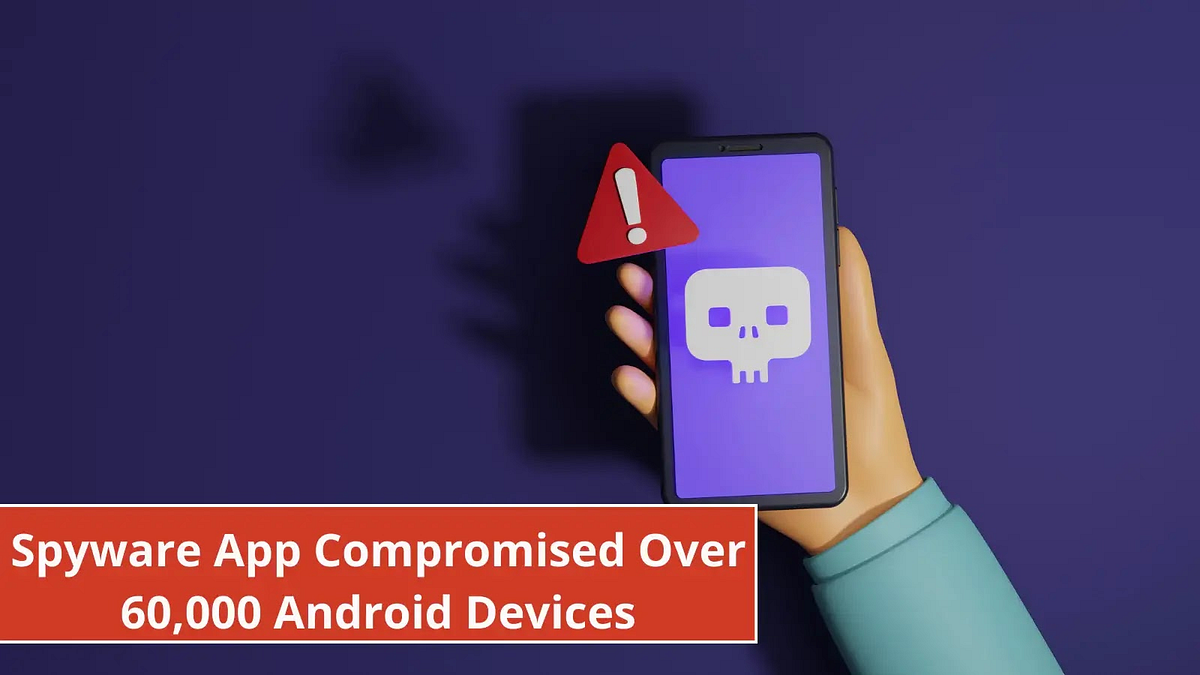
The proliferation of government spyware apps on app stores represents a significant threat to our digital freedoms. While offering convenient access to information and services, these apps present a serious challenge to our privacy and security. We need stronger regulations, more transparent app store policies, and better user education to navigate this increasingly complex landscape. The future of our digital lives depends on it – and it’s a future we all need to be actively involved in shaping.
It’s time to demand greater accountability and transparency from both app developers and government agencies.
Essential Questionnaire
What data do these government surveillance apps typically collect?
The data collected varies, but can include location data, contact lists, call logs, microphone recordings, text messages, and even browsing history. The level of intrusion is highly concerning.
Can I tell if a government surveillance app is on my phone?
It’s difficult to definitively know. Many apps are designed to be covert. However, regularly reviewing your app permissions and looking for unusually high data usage can be helpful.
What can I do to protect my privacy from these apps?
Use strong passwords, enable two-factor authentication, carefully review app permissions before installing, and consider using privacy-focused apps and VPNs.
Are there any legal avenues to challenge the use of these apps?
This varies by country. However, many jurisdictions have laws protecting privacy and data security that could be relevant. Legal counsel specializing in data privacy is recommended.

